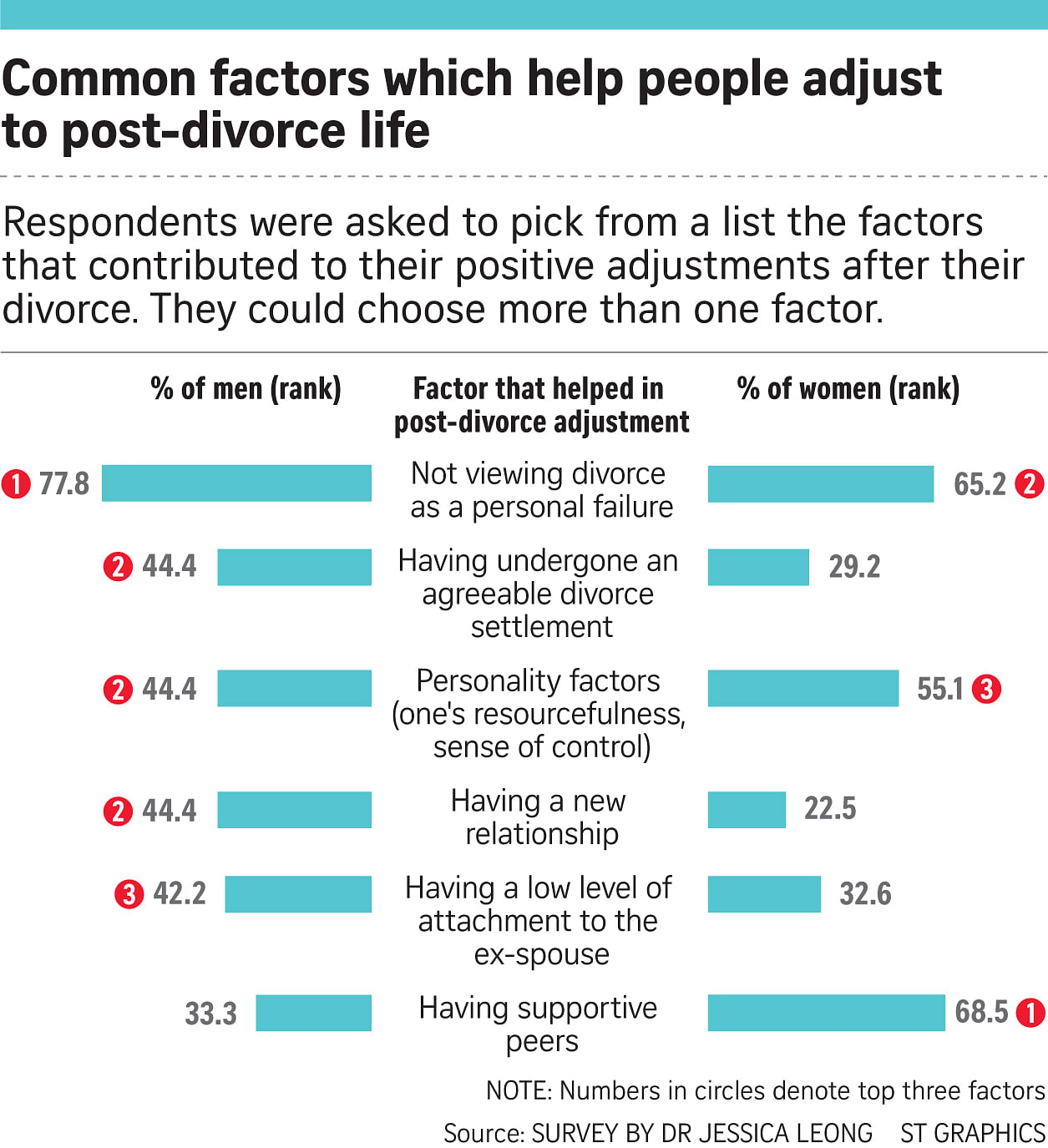Erasing the scars, dealing with the hurt
Sign up now: Get ST's newsletters delivered to your inbox
Priscilla Goy
Follow topic:
More than six months after splitting up, divorcees still carry the scars and the hurt deeply, with some unable to sleep and others drowning their sorrows in alcohol. But some factors, such as having a support network or not viewing divorce as a personal failure, can help one to adjust to life after divorce.
This is according to a study of 134 divorcees here by Dr Jessica Leong.
Part of her study asked respondents to recall how they felt and behaved at different points after the divorce - immediately after it, within six months, and more than six months after the divorce.

While it seems that time helps to heal the wounds - the proportion of men and women feeling sad fell over time - sadness was still the top negative feeling experienced, out of a list of 12 that they could choose from, at each of the three time periods.
About one in four of the women said they were still sad more than half a year after the divorce; for men, the figure was one in five.
Other common negative feelings among the divorcees, more than half a year after their split, include being worried, guilty and restless.
Dr Leong told The Straits Times that based on her experience as a counsellor and interviews with some of the respondents, some of the saddest divorcees are those whose former spouses deserted them for no apparent reason.
"They don't understand what happened. They don't have a story they can tell. If your mother asks you why your husband left you, you don't even know why - can you imagine how that feels?
"Human beings yearn for a sense of closure. Unfinished business leaves behind wounds too."
Divorcees are also sad when their children yearn for the former spouse, and on occasions such as birthdays and wedding anniversaries when they recall good times in the past, said Dr Leong.
Another worrying finding is the prevalence of self-destructive behaviour among divorcees.
Respondents were asked if, after their divorce, they had misused substances - such as drinking alcohol or smoking more than usual - had sleeping problems or changes in their eating patterns, among other things.
Among women, the most common negative behaviours were having disrupted sleep (52 per cent), and losing their appetites (44 per cent). For men, more than a third reported misuse of alcohol, and the same figure reported frequently waking up during sleep.
Counsellors said it was important for divorcees to have a support network so they do not indulge in such behaviour when they are alone, and they would likely cope better.
This also corresponded with Dr Leong's survey findings which showed respondents' views on the factors that helped them get out of their negative feelings and adjust to post-divorce life.
Not viewing divorce as a personal failure turned out to be the top factor among men, and the second-top factor among women.
Having supportive peers was the most commonly cited factor among women, though this applied to only a third of the men. Nearly half the men also said that having an agreeable divorce settlement was helpful.
Ms Hema Gurnani of Wings Counselling Centre said this could be because men are more practical and want to get through the divorce proceedings quickly and amicably. But it is still important for men to have a support system to help them cope with their emotions, she said.
"The marriage had started off as a relationship of love, for the wife, and for the husband too. If men have that support network, they will feel less lonely and are less likely to resort to self-destructive behaviour such as drinking."

